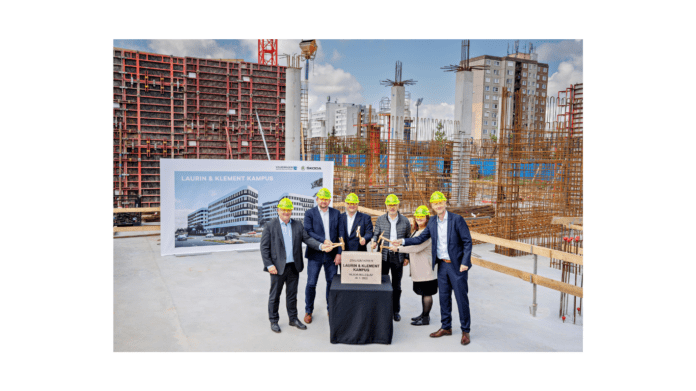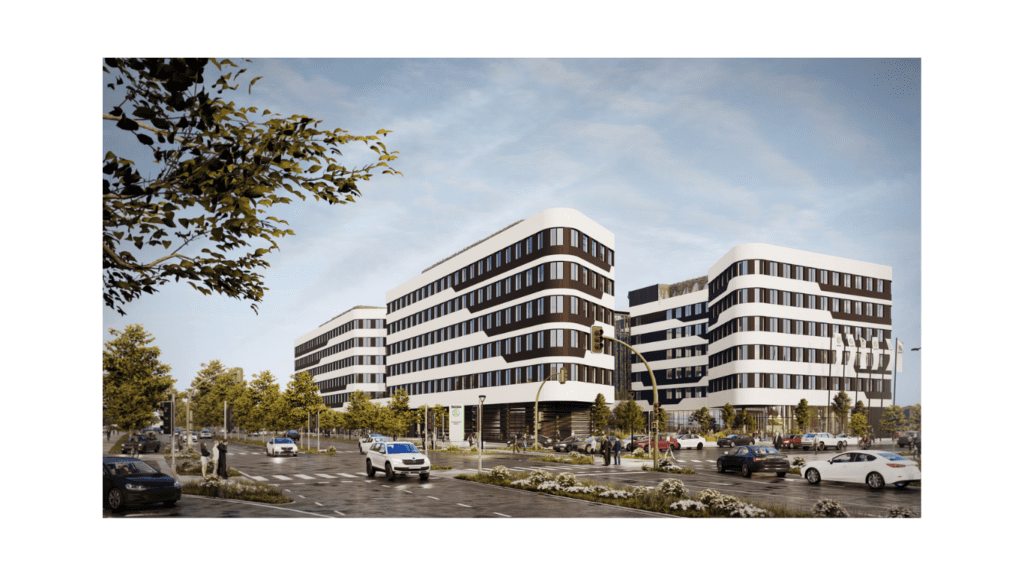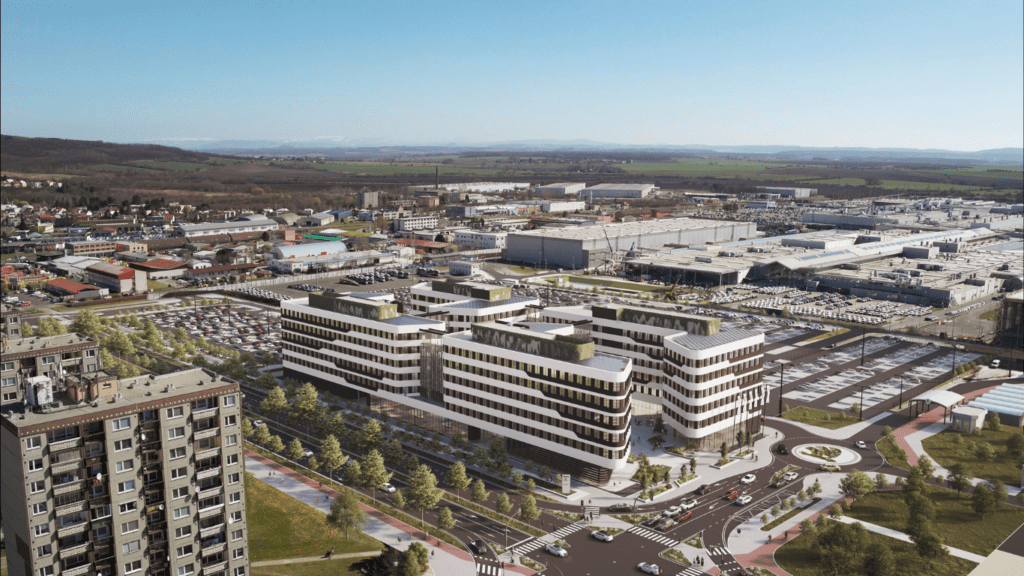
Managing Directors of Volkswagen Immobilien Meno Requardt and Hardy Brennecke, Vice-Chairman of the KOVO trade union Josef Zmrhal, Skoda Auto Board Member for Purchasing Karsten Schnake, ŠKODA AUTO Board Member for Production and Logistics Michael Oeljeklaus and Head of Real Estate Asset and Travel management Radka Čihulková laid the foundation stone for the new Skoda Auto headquarters complex, known as the Laurin & Klement Kampus. It will be built opposite the company’s current headquarters in Mladá Boleslav and is expected to be opened in the second half of 2023. The new building sets new standards in sustainability.
“With our new corporate headquarters, we are making a clear commitment to the Mladá Boleslav site and the founders of our company. The premises of the Laurin & Klement Kampus will soon create the optimal conditions for interdisciplinary cooperation and the generation of new creative Simply Clever ideas as an element of our brand. In constructing the new building, we are consistently guided by the ambitious sustainability targets we have set ourselves: among other things, a photovoltaic system with 330 panels and peak output of 100 kW will provide additional electricity.”

Karsten Schnake, Skoda Auto Board Member for Purchasing, said, “We are delighted to bring the future of work to Škodians by creating these workplaces. The attractive office spaces are based on modern New Work concepts and offer customised solutions for various requirements to provide an optimal working environment. The state-of-the-art building technology and all other planning disciplines are consistently implemented according to the BIM (Building Information Modelling) planning method and sustainability aspects. For example, sustainable Cobiax hollow-core ceilings will be installed to intelligently decrease the CO2 footprint as a result of using less concrete.”
Meno Requardt, Managing Director of Volkswagen Immobilien, said, “The Czech car manufacturer’s future headquarters will cover a total area of 44,000 sq.m. There will be space for up to 1,700 employees over five storeys in four wings. Eleven of the company’s offices and other rented spaces in Mladá Boleslav will be combined in the new building. Thus, the company will achieve operational savings by eliminating rental costs. In addition to office space, the new complex will house a 2,100 sq.m. company restaurant for 400 diners and a conference area. An underground car park will also provide space for over 300 vehicles.”

Skoda Auto will be switching to biomass by 2025 to supply its new corporate headquarters with CO2-neutral energy. Operated in partnership with the energy company ČEZ, a photovoltaic system consisting of 330 panels and a peak output of 100 kW will provide additional electricity from the roof of the building. At the same time, a number of structural and technical innovations will help to significantly reduce electricity consumption. Using LED technology and intelligent light sensors alone will halve the energy required compared to fluorescent tubes. Highly efficient ventilation systems will pre-cool the offices at night, while the air-conditioning systems will achieve a recuperation coefficient of 80 per cent by recovering energy. Roller shutters will effectively protect against solar radiation and thus reduce the cooling load of the building by 30 per cent.
Rainwater will be collected in a central collection point and treated using a 776 cu.m. filtration system. The water can then be used to irrigate the 4,070 m2 of green space, which will provide a natural habitat for numerous insect and animal species across the 13,400 sq.m. site.
The German Sustainable Building Council (DGNB) plans to award the new building a gold certificate. The certification system has gained recognition as a global benchmark for clearly defined standards in the field of sustainable construction and thus ensures international measurability and comparability.





